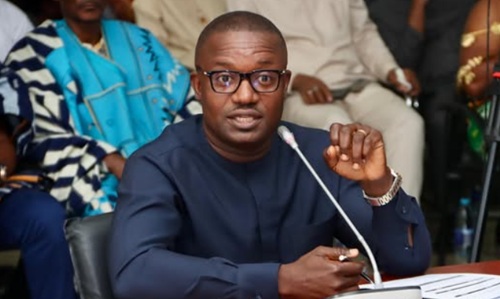Ghana’s energy sector is in turmoil, with monthly losses estimated to exceed ₵1 billion due to deep-rooted inefficiencies in the system.
Energy Minister John Jinapor has called for urgent reforms to overhaul the nation’s power infrastructure and address the numerous challenges plaguing the sector.
The root causes of these significant losses include outdated infrastructure, high technical and commercial losses, and insufficient investment in necessary maintenance and upgrades.
To combat this crisis, the government is considering multiple strategies, including the formation of a dedicated task force.
This task force will conduct a comprehensive audit of the country’s power infrastructure, identifying critical areas that require urgent attention and improvement.
In a bid to move the sector toward long-term sustainability, the government is also exploring the transition to renewable energy sources.
The focus on green energy is seen as a key strategy to reduce reliance on fossil fuels, decrease financial losses, and enhance energy security. This shift is expected to attract investment and create a favorable business environment, which could bolster economic growth.
The Minister’s remarks have sparked widespread debate among energy experts and industry stakeholders, many of whom have long pushed for reforms.
They argue that addressing the inefficiencies in Ghana’s power sector is crucial to ensuring a stable and reliable electricity supply for the nation. The government’s commitment to these reforms will be pivotal in restoring confidence in the sector and positioning it for future growth.
These inefficiencies are taking a heavy toll on the economy. The power sector is a cornerstone of economic development, and the current situation threatens to stifle growth and limit opportunities for businesses.
By tackling these problems head-on, the government has the potential to stabilize the sector and create a conducive environment for economic expansion.
Achieving these goals will require a collaborative approach, involving consultations with industry experts, the private sector, and other stakeholders.
A comprehensive plan to modernize infrastructure, embrace new technologies, and adopt sustainable energy practices will be crucial to ensuring the long-term success of Ghana’s power sector.
With a proactive and strategic approach, the government can pave the way for a more resilient energy sector, which will play a vital role in Ghana’s continued development.



